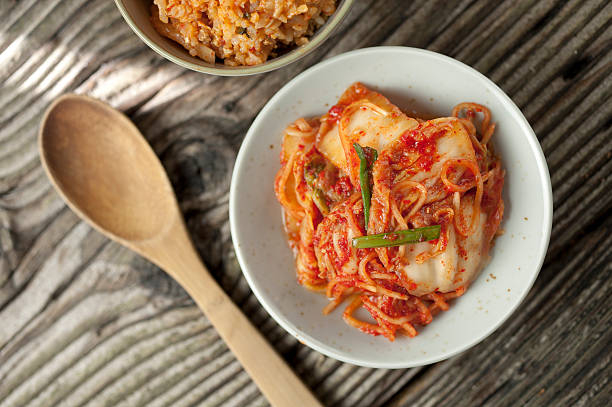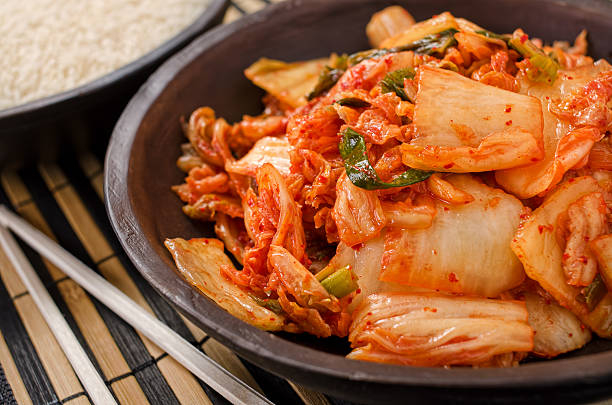Nutrient dense

Kimchi has few calories and is rich in nutrients. Chinese cabbage, one of the key ingredients in kimchi, contains around 34 amino acids, at least 10 distinct minerals, and vitamins A and C on their own. The actual nutritional makeup of kimchi varies greatly depending on the materials used in different batches and brands. All the same, a 1-cup (150-gram) serving contains approximately:
- Calories: 23
- Carbs: 4 grams
- Protein: 2 grams
- Fat: less than 1 gram
- Fiber: 2 grams
- Sodium: 747 mg
- Vitamin B6: 19% of the Daily Value (DV)
- Vitamin C: 22% of the DV
- Vitamin K: 55% of the DV
- Folate: 20% of the DV
- Iron: 21% of the DV
- Niacin: 10% of the DV
- Riboflavin: 24% of the DV
Numerous green vegetables are excellent suppliers of vitamins K and riboflavin. The green vegetables that are frequently used in kimchi, such as spinach, cabbage, and celery, make it a fantastic source of these vitamins and minerals. Riboflavin helps control energy production, cellular growth, and metabolism, whereas vitamin K is crucial for many biological processes, including bone metabolism and blood coagulation. Additionally, the fermentation process can result in the development of new nutrients that are simpler for your body to absorb.











